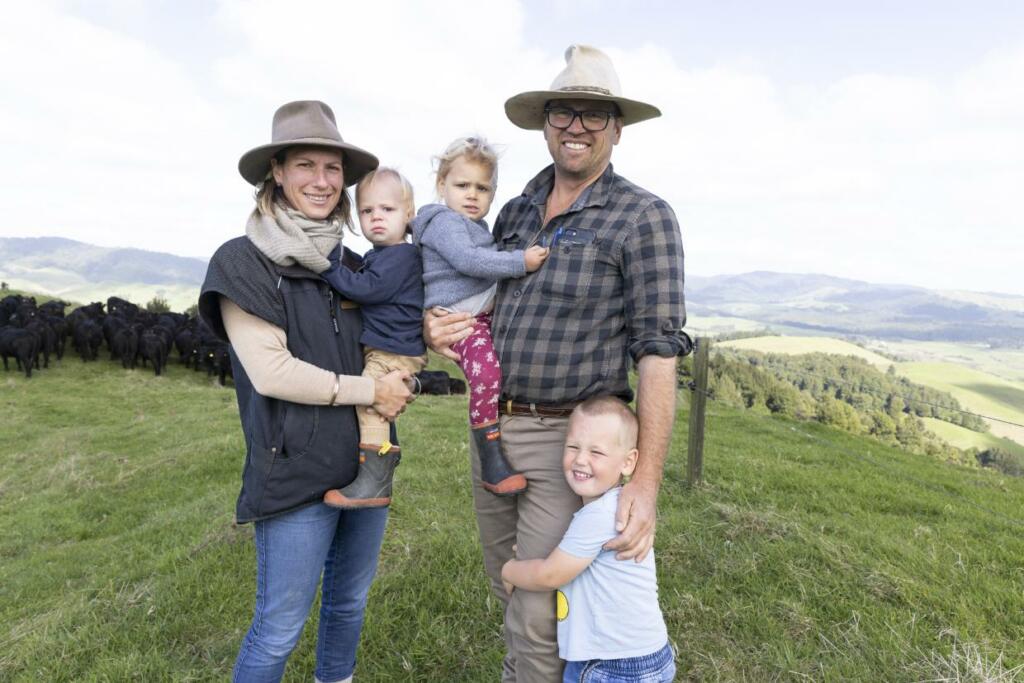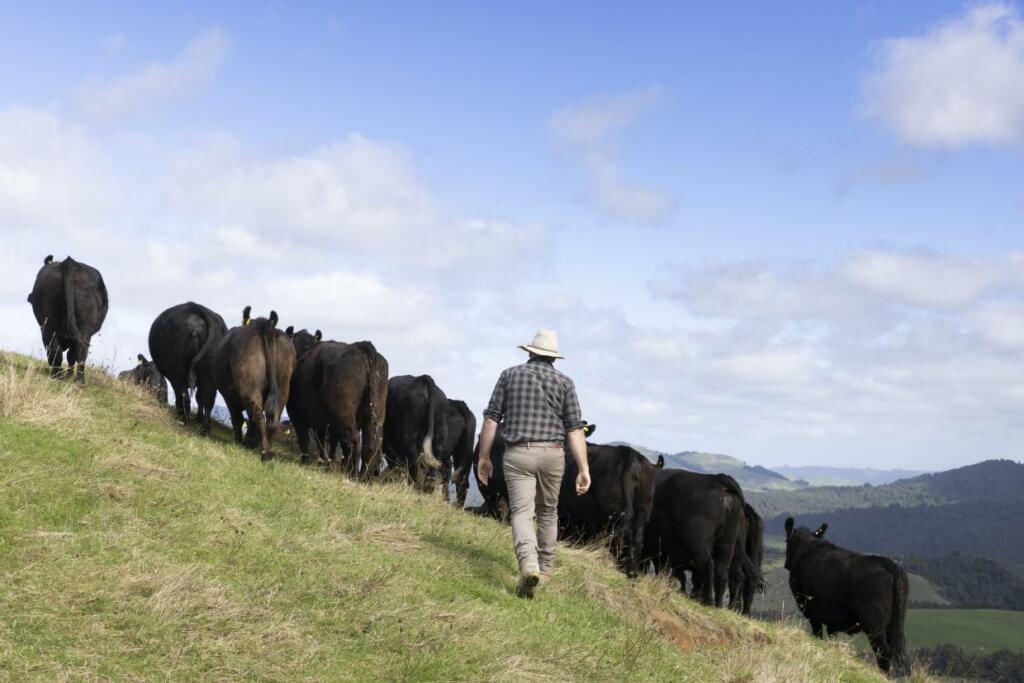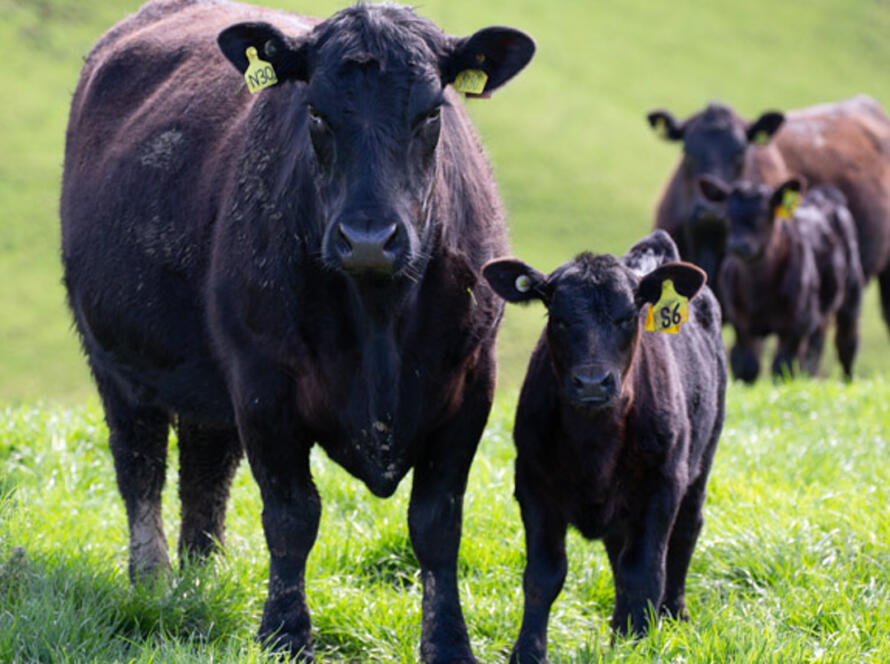

At the end of March, Will Jackson and his partner Nicola Bradstreet packed up their family and livestock and moved from Te Akau to a new 1364 hectare property named Stockland in Wharepūhunga, south of Te Awamutu. The Te Akau farm has been sold and the majority will be planted in production forestry.
With a multitude of challenges facing the farming sector, it had became apparent to the couple that some strategic changes were required within the business to remain relevant and profitable.
“Having to sell to forestry was a decision we didn’t take lightly. It was obviously a tough one because we’re extremely proud of what we had achieved at Te Akau,” Jackson says.
In 1950, Jackson’s grandfather used his return serviceman’s grant to buy the original farm in Te Akau, however the name Piquet Hill can be traced back to the Te Awamutu area in the1860s where his great-great-uncle named his Orakau farm Piquet Hill.
Jackson says the new property is beautiful with large stands of native bush and two significant rivers running through it.
“It’s a pretty magical spot. And we are very fortunate to have been given the opportunity to call this unique property home.”
He says they are humbled by the fact that all their staff continue their support by making the move with them.
“Nicola has been a huge part of making it all happen,” Jackson says.
“Her parents have been incredibly supportive allowing us to lease their farm.”
Bradstreet grew up on her parents’ 380ha property 10km down the road, which they have started to lease. Their oldest child Matilda is set to start school in August at Korakonui Primary, the same school that her mum went to.
Stockland, had been farmed by Leveson and Vicki Gower. Leveson’s parents, Alec and Agnes, purchased the bare bush block off Lands and Survey in 1954.
“The Gowers have been amazing to deal with,” Jackson says. “We bought a farm but have got so much more with it.”
The property had been developed into a high producing beef cell grazing system. Setbacks were created to improve water quality, and they had also planted and protected several areas of native bush on the property.
The couple do not take their new roles lightly.
“Like all farmers, we are stewards of the land, forming and preserving our farms for future generations,” Jackson says.
Bradstreet refers to the different parts of the new farm as different ‘rooms’, all having independent character and charm. One of the highest points on the farm has a view of Maungatautari mountain and on a fine day Jackson says you can see out to the Hauraki plains.
His father Peter Jackson was well known in the agricultural industry and had a huge influence over the profile and direction of the breeding operation.
“My father was one of the original breeders in the Romney development group as well as a pioneer in the development of facial eczema (FE)-tolerant sheep. He had very basic breeding principles which have stood the test of time and I still use these ideas today in both our sheep and cattle breeding operations.”
Jackson says there have been a lot of changes in the sheep breeding industry but with change comes opportunity.
“We have developed the Sheddmaster, a wool-less sheep which we have started to commercialise in the last couple of years. With the poor price of wool and the high cost of shearing there has been a big uptake this year and we feel we are ready to take this breed to the next level.”
He says they created the Sheddmaster breeding composite by using maternal composite ewes and shedding rams.
“In 2017, one of our biggest customers said they loved our sheep but needed to go wool-less. They gave us five years to come up with a sheep. That is what really kicked us off. We are now running 1000 Sheddmaster ewes and 400 hoggets.
“We crossed FE-tolerant Wiltshires and other shedding rams over maternal composite ewes and selected from the bare and full shedding females, then back-crossed the full shedding half-bred rams back over them.”
Essentially they are trying to breed a maternal composite without wool.
“It is slower than breeding up, but we feel it is important to maintain as much maternal composite in the breed to lock in those base performance traits of growth, fertility, FE-tolerance and worm resistance that have made the sheep so successful in the past.”
He says he is focused on internally breeding his own sheep rather than out-crossing with outside genetics.
“I’m very much trying to develop the sheep by internally producing sires within the flock. By doing so I have far more control over the performance outcomes we focus on. The sheep are becoming phenotypically standardised. Their performance is becoming more predictable as the sheep become more uniform.”
One of the highest points on the farm has a view of Maungatautari mountain and on a fine day you can see out to the Hauraki plains.
The Angus stud is also starting to kick into gear with preparation for the third annual bull sale in September. They are developing their bulls with the same breeding principles as their sheep.
“We are laser focused on the needs and outcomes of commercial farmers and preparing stock that suit and handle varying environments.”
Bradstreet says they are also developing a strategy to diversify and showcase the property to the public. “We are currently developing a significant agri-tourism opportunity, so watch this space.” “With a young family it’s time to consolidate and plan for the future,” Jackson says. “It is quite an unusual farm, with plenty of scope for development.”
Piquet Hill Farms has moved stands at the Fieldays this year but will still be in the main pavilion (PD39). Alongside the genetics, they will be showcasing their plans for the property hoping for public feedback.


